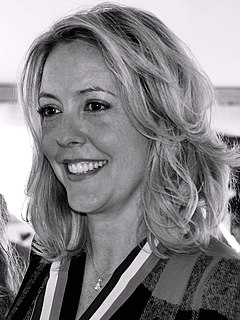A Quote by Richard Ford
They may already know too much about their mother and father--nothing being more factual than divorce, where so much has to be explained and worked through intelligently (though they have tried to stay equable). I've noticed this is often the time when children begin calling their parents by their first names, becoming little ironists after their parents' faults. What could be lonelier for a parent than to be criticized by his child on a first-name basis?
Quote Topics
About
After
Basis
Becoming
Begin
Being
Calling
Child
Children
Could
Criticized
Divorce
Explained
Factual
Father
Faults
First
First Name
His
Know
Little
Lonelier
May
More
Mother
Mother And Father
Much
Name
Names
Nothing
Noticed
Often
Parent
Parents
Stay
Than
Though
Through
Time
Too
Too Much
Tried
Worked
Related Quotes
Being a figurehead for those with family members in prison is somewhat new for me. Something I've discovered since my father's incarceration is that the prison system is broken. My first-hand experiences have taught me that reform needs to happen sooner than later. I'm most interested in mentoring children with parents in prison. When a parent is sentenced to a jail term, the child is sentenced to the same time to be spent without a mother or father. No child should suffer a stigma or lack support and guidance because of the sins of a parent.
I worry about the kids who have too much. As a parent living in a so-called good neighborhood with children who went to private high school, I found myself spending much time in parent groups worrying about alcohol, unsupervised parties, and parents not being parents. We've got to send messages to our kids about what is important.
People talked about being a parent, or being a mother or a father. We don't talk about "wiving" our husbands or "friending" our friends, or "childing" our parents. We just talk about being in a relationship with those people. You don't measure whether your marriage was good based on whether or not your husband is better now than he was 10 years ago, or whether your friend is richer than when they first became your friend. The relationships between parents and children is a kind of love, rather than a kind of work.
I tried to be the greatest boxer in the world and a good parent, too. I had instant feedback on my success as a boxer. Often, parents don't really know if what they are doing is right or wrong until their child is grown and it is too late to change any of the decisions. Whatever my failings as a parent, I am very proud of all my children. It wasn't easy for them to make their own way with such a controversial and public father.
When you’re young, your world is pretty limited. My parents, my family, my church dominated my world. And because Birmingham was so segregated, I didn’t really have to encounter the slings and arrows of racism on a daily basis. Obviously, from time to time I did, like when my parents took me to see Santa Claus and he wasn’t letting black children sit on his knee. But my parents tried to insulate me as much as they could.
One can tell a child everything, anything. I have often been struck by the fact that parents know their children so little. They should not conceal so much from them. How well even little children understand that their parents conceal things from them, because they consider them too young to understand! Children are capable of giving advice in the most important matters.
I don't know if you've ever noticed this, but first impressions are often entirely wrong. You can look at a painting for the first time, for example, and not like it at all, but after looking at it a little longer you may find it very pleasing. The first time you try Gorgonzola cheese you may find it too strong, but when you are older you may want to eat nothing but Gorgonzola cheese. Klaus, when Sunny was born, did not like her at all, but by the time she was six weeks old the two of them were thick as thieves. Your initial opinion on just about anything may change over time.
Suddenly Yankel was overcome with a fear of dying, stronger than he felt when his parents passed of natural causes, stronger than when his only brother was killed in the flour mill or when his children died, stronger even than when he was a child and it first occurred to him that he must try to understand what it could mean not to be alive -- to be not in darkness, not in unfeeling -- to be not being, not to be.
Modern children were considerably less innocent than parents and the larger society supposed, and postmodern children are less competent than their parents and the society as a whole would like to believe. . . . The perception of childhood competence has shifted much of the responsibility for child protection and security from parents and society to children themselves.
Parents who are cowed by temper tantrums and screaming defiance are only inviting more of the same. Young children become more cooperative with parents who confidently assert the reasons for their demands and enforce reasonable rules. Even if there are a few rough spots, relationships between parents and young children run more smoothly when the parent, rather than the child, is in control.






































